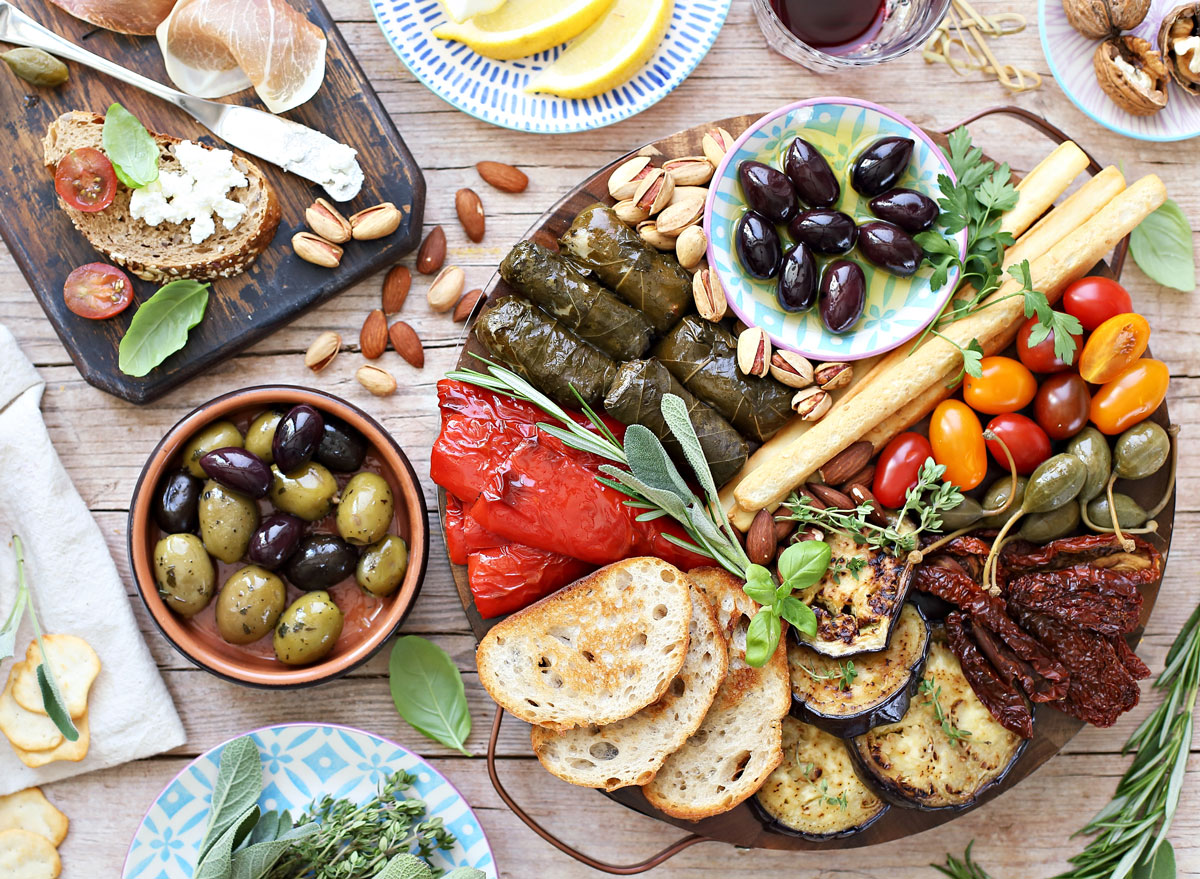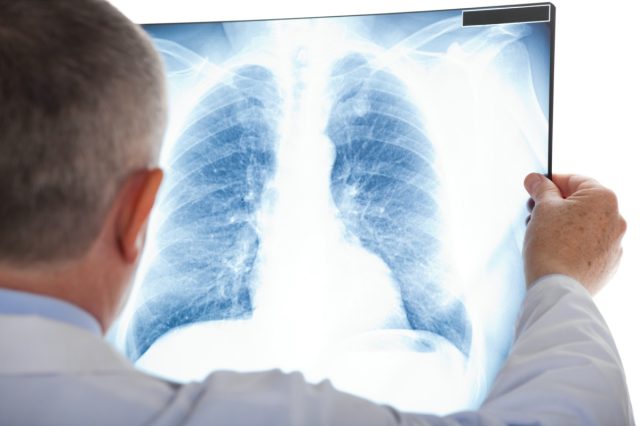The #1 Best Eating Habit to Protect You From Lung Cancer, New Study Suggests

In many ways, the Mediterranean diet seems like something of a wonder diet.
It could have a positive impact on your bones, your cognitive function, and your cardiovascular health. It may even slow aging, among other promising scientific findings. Now, emerging evidence finds that this diet could also benefit your respiratory system.
In fact, a new study finds that sticking to the Mediterranean diet is linked with a lower risk of lung cancer.

Related: The #1 Best Juice to Drink Every Day, Says Science
In the study, published Monday, April 11 in the journal Frontiers in Nutrition, researchers conducted a meta-analysis (a statistical analysis comparing the results of existing studies on the subject) of nine previous articles. All together, these articles, which compared participants’ adherence to the diet to their risk of the disease, showed that, the closer people stuck to the principles of the Mediterranean diet, the lower were their odds of getting the disease.
“While more studies, especially those that include participants from many different parts of the world would be helpful to better understand these findings, this study is encouraging,” Vandana Sheth, RDN, CDCES, FAND, author of My Indian Table: Quick & Tasty Vegetarian Recipes, tells Eat This, Not That! “Food can have a powerful positive impact in health promotion and disease prevention. Enjoying a Mediterranean diet pattern can be part of your arsenal to combat and reduce your risk for some types of cancer.”
This particular study looked at correlation, not causation. That is, just because people who stuck to the diet were less likely to get the disease, does not mean that the diet itself keeps people from getting the disease. Still, researchers concluded that it is possible that sticking to the Mediterranean diet could be a protective factor.
Certainly, the diet includes many nutritious foods and can contribute to one’s overall health.
“The foods typically consumed on the Mediterranean diet are nutrient-rich including olive oil, vegetables, fruits, whole grains, legumes, nuts and seeds and fish and seafood,” Julie Andrews, MS, RDN, CD, FAND, owner of The Healthy Epicurean, explains. “These foods contain nutrients that are healthful for the entire body, such as omega 3 fatty acids, fiber, vitamins, minerals and antioxidants…. It’s not surprising to see the data shows the Mediterranean diet may also help keep the lungs healthy as well as the heart and brain.”
For more on how sticking to this diet could affect your health, read about What Happens to Your Body On the Mediterranean Diet.









